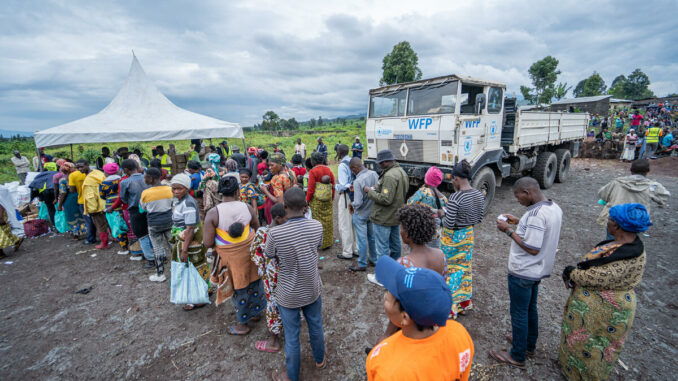
The Democratic Republic of Congo (DRC) is grappling with a record humanitarian crisis, as 28 million people face acute hunger, exacerbated by escalating conflict in the eastern part of the country. According to the United Nations, the surge in hunger is driven by the ongoing violence between Government forces and Rwandan-backed M23 rebels, which has intensified since December.
The UN’s World Food Programme (WFP) and Food and Agriculture Organization (FAO) warned on March 27 that the situation is dire, with an additional 2.5 million people falling into acute hunger since the recent upsurge in violence.
The report highlights that 3.9 million of the 28 million facing food insecurity are experiencing emergency levels of hunger, classified as Phase 4 in the Integrated Food Security Phase Classification (IPC), which signals critical food shortages. Eastern DRC has been particularly hard hit, with more than 10 million people affected by food insecurity due to ongoing conflict and displacement. Athman Mravili, the interim FAO representative, noted that the loss of crops, soaring food prices, and the growing vulnerability of millions are contributing to the crisis, which has seen the country’s food situation deteriorate rapidly.
The economic challenges of the DRC, including soaring food prices, inflation, and the depreciation of the Congolese franc, have compounded the difficulties faced by the population. The conflict has displaced hundreds of thousands of people, while cuts in foreign aid from major donors like the US have left humanitarian agencies struggling to respond effectively. With the country’s ongoing insecurity and the broader impacts of climate change and natural disasters, the situation remains critical, and the international community faces mounting pressure to address the growing humanitarian disaster in the region.
